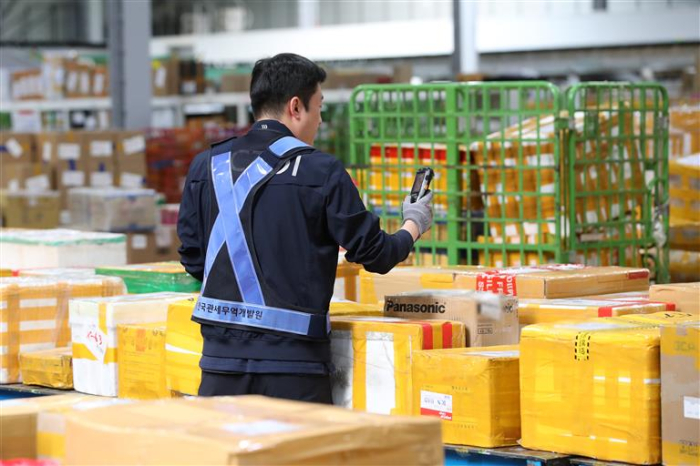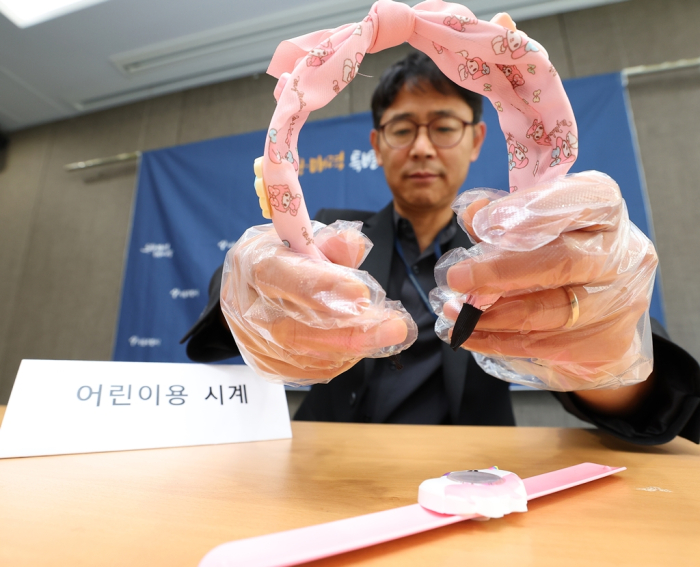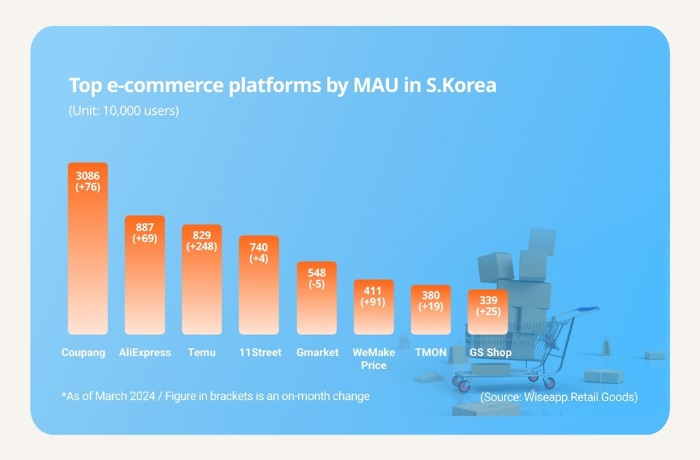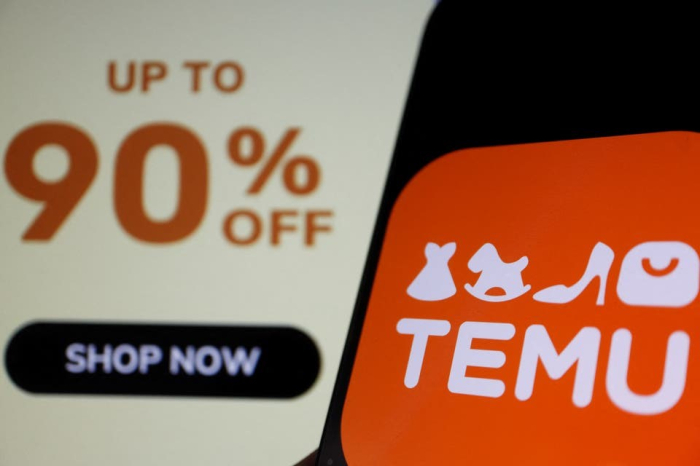Regulations
South Korea to ban Chinese online products without KC certification
Foreign platform operators will be required to set up local offices in Korea to properly handle customer issues
By May 17, 2024 (Gmt+09:00)
4
Min read
Most Read
LG Chem to sell water filter business to Glenwood PE for $692 million


KT&G eyes overseas M&A after rejecting activist fund's offer


Kyobo Life poised to buy Japan’s SBI Group-owned savings bank


StockX in merger talks with Naver’s online reseller Kream


Meritz backs half of ex-manager’s $210 mn hedge fund



South Korea will ban products purchased online through overseas shopping platforms but without the KC certification amid growing concerns about product safety, particularly goods on Chinese online shopping malls such as AliExpress, Temu and Shein.
Following a ministers’ meeting presided over by Prime Minister Han Duck-soo at the Incheon Airport Regional Customs office on Thursday, the government announced a series of measures to strengthen regulatory scrutiny on people’s direct purchase of goods from overseas online shopping malls.
From June 1, some 80 items, including children’s goods, electrical products and disinfectants that have not received the KC safety certification will be banned from selling online.
Currently, all products imported through Korea’s customs clearance services must go through the KC certification confirmation process. However, goods people buy directly on overseas online shopping malls are exempt from such processes.

The government said it will soon revise related laws to ensure products sold and purchased online have the KC safety certification.
Subject to the new rules are 34 items controlled under the Children’s Products Act, including strollers, walkers, bicycles, textile products and toys; 34 electrical and household goods such as wires, cords, switches and batteries; and 12 household chemical products, including sterilizers, disinfectants and pesticides.
“Even before the new law is enacted, we plan to prohibit imports of such goods without a KC certification starting next month,” said a government official.
Consumers can check the list of banned products at the state-run Consumer24 website.

TOXIC SUBSTANCES IN ALIEXPRESS, TEMU PRODUCTS
On Thursday, the Seoul Metropolitan Government separately announced the results of its safety checks on products sold via overseas online shopping operators.
The city government said seven accessories, including children's headbands and watches sold on Chinese online malls AliExpress and fashion e-retailer Shein, contained phthalate plasticizers, a carcinogen, 270 times above the permitted levels.
Last month, Seoul revealed similar findings from its investigation into goods sold on Chinese online shopping malls, saying that some of them contained cancer-causing substances.
An examination of 31 best-selling children’s goods and daily necessities sold on AliExpress, an online shopping app operated by Chinese tech giant Alibaba, showed that eight products, including a swimming float, a baby walker and two types of teethers, contain hazardous substances far exceeding permitted levels.

Children’s leather bags, in particular, were found to have four types of phthalates, commonly used in plastic processing, with their amount surpassing the permitted levels by 55.6 times, the city government said.
A separate Korea Customs Service investigation of 404 items sold on AliExpress and Temu showed that 96 goods, or 23.8% of the total, were found to contain as much as 700 times the legal limits of cadmium and lead.
CHINESE PLATFORMS’ RAPID GROWTH IN KOREA
In recent years, Chinese e-commerce giants have increasingly attracted Korean consumers to their online platforms with cheaper products and sometimes faster deliveries than Korean rivals such as Coupang, Naver Corp., 11Street, SSG.COM and Gmarket.

Temu, a popular Chinese discount e-commerce platform operated by PDD Holdings Inc., formerly Pinduoduo, landed in Korea last year and has cracked homegrown players’ dominance in the online retail space.
Offering sharply discounted goods and free returns, it has instantly become one of the most frequently downloaded apps among Korean youth.
Korea’s direct online purchasing from overseas platforms reached 6.8 trillion won ($5 billion) last year, up 28.3% from the previous year.
Korean consumers’ complaints have also increased rapidly. Koreans’ complaints about goods purchased from Chinese online platforms rose to 883 cases last year from 365 in 2022, posting a 143% on-year increase.
KOREA’S GET-TOUGH POLICY
In March, the Korean government said it would introduce a get-tough e-commerce policy on Chinese platforms amid safety concerns and increasing complaints about fake products and a lack of dispute settlements by online shopping mall operators.
The government said it will revise the Electronic Commerce Act to make it mandatory for large foreign online platform operators to set up local corporations or local offices in Korea.
Regulators will strengthen the monitoring of unfair business practices by foreign online retailers, it said.
Write to Sang-Yong Park at yourpencil@hankyung.com
In-Soo Nam edited this article.
More to Read
-
 RegulationsCarcinogens found in kids' goods sold on Chinese apps; Temu under probe
RegulationsCarcinogens found in kids' goods sold on Chinese apps; Temu under probeApr 08, 2024 (Gmt+09:00)
4 Min read -

-
 RegulationsSouth Korea gets tough with Chinese platforms AliExpress, Temu, Shein
RegulationsSouth Korea gets tough with Chinese platforms AliExpress, Temu, SheinMar 13, 2024 (Gmt+09:00)
3 Min read -
 E-commerceChina’s Temu challenges homegrown e-commerce platforms in Korea
E-commerceChina’s Temu challenges homegrown e-commerce platforms in KoreaOct 19, 2023 (Gmt+09:00)
3 Min read
Comment 0
LOG IN


